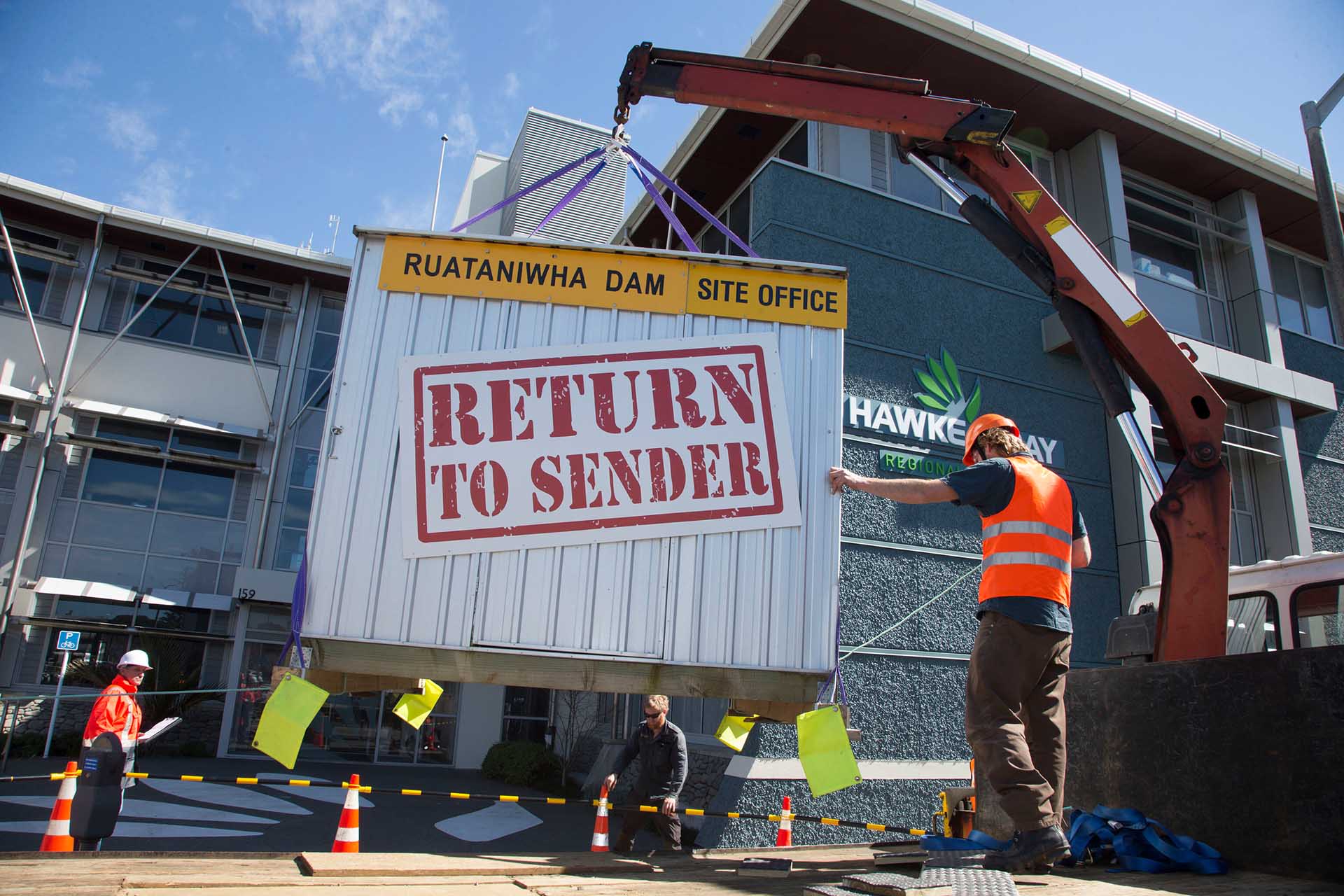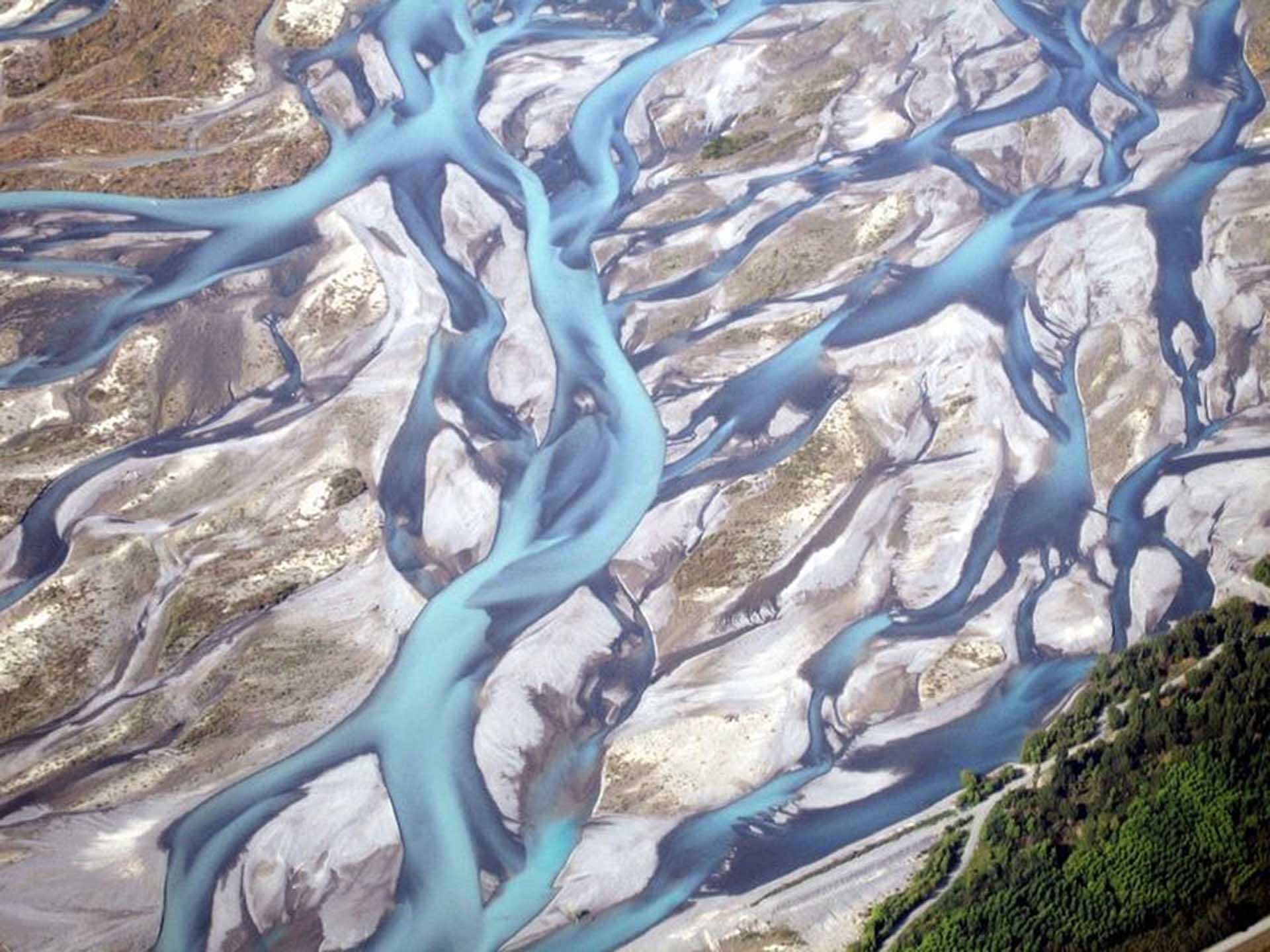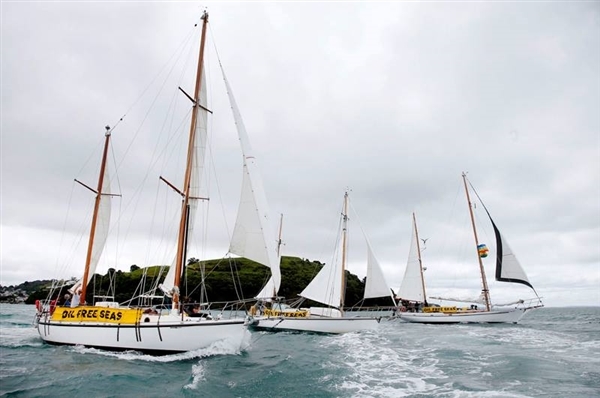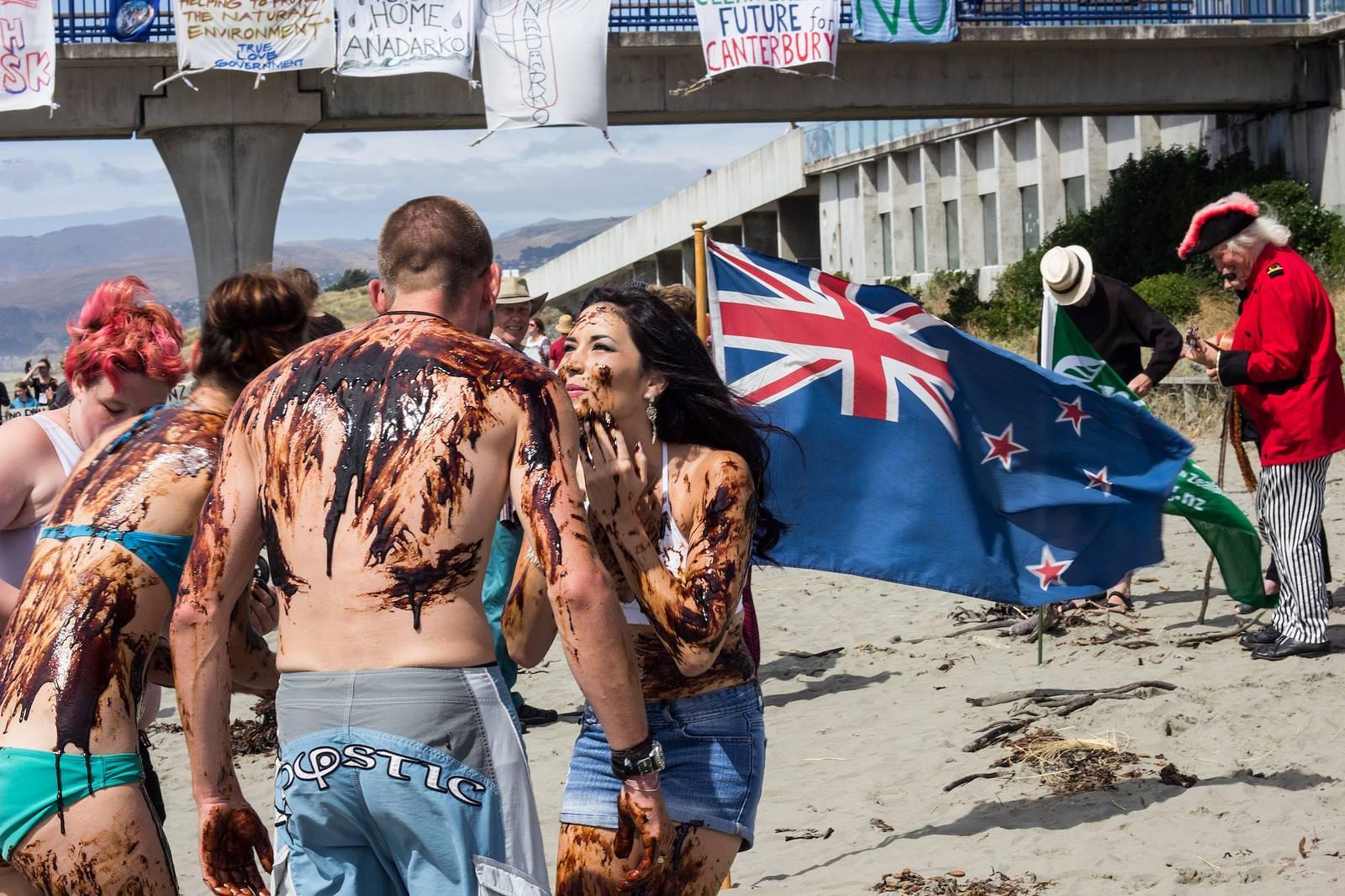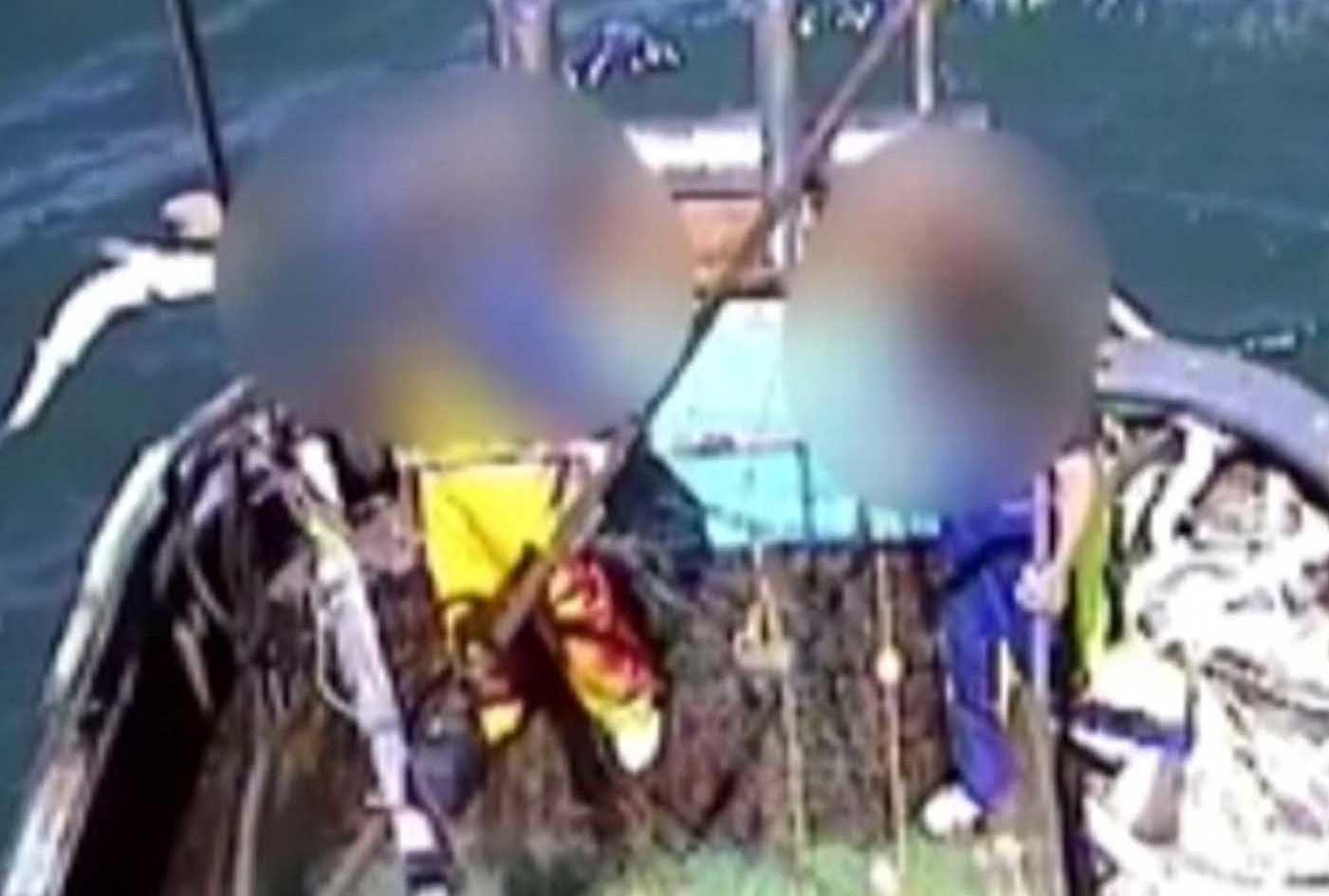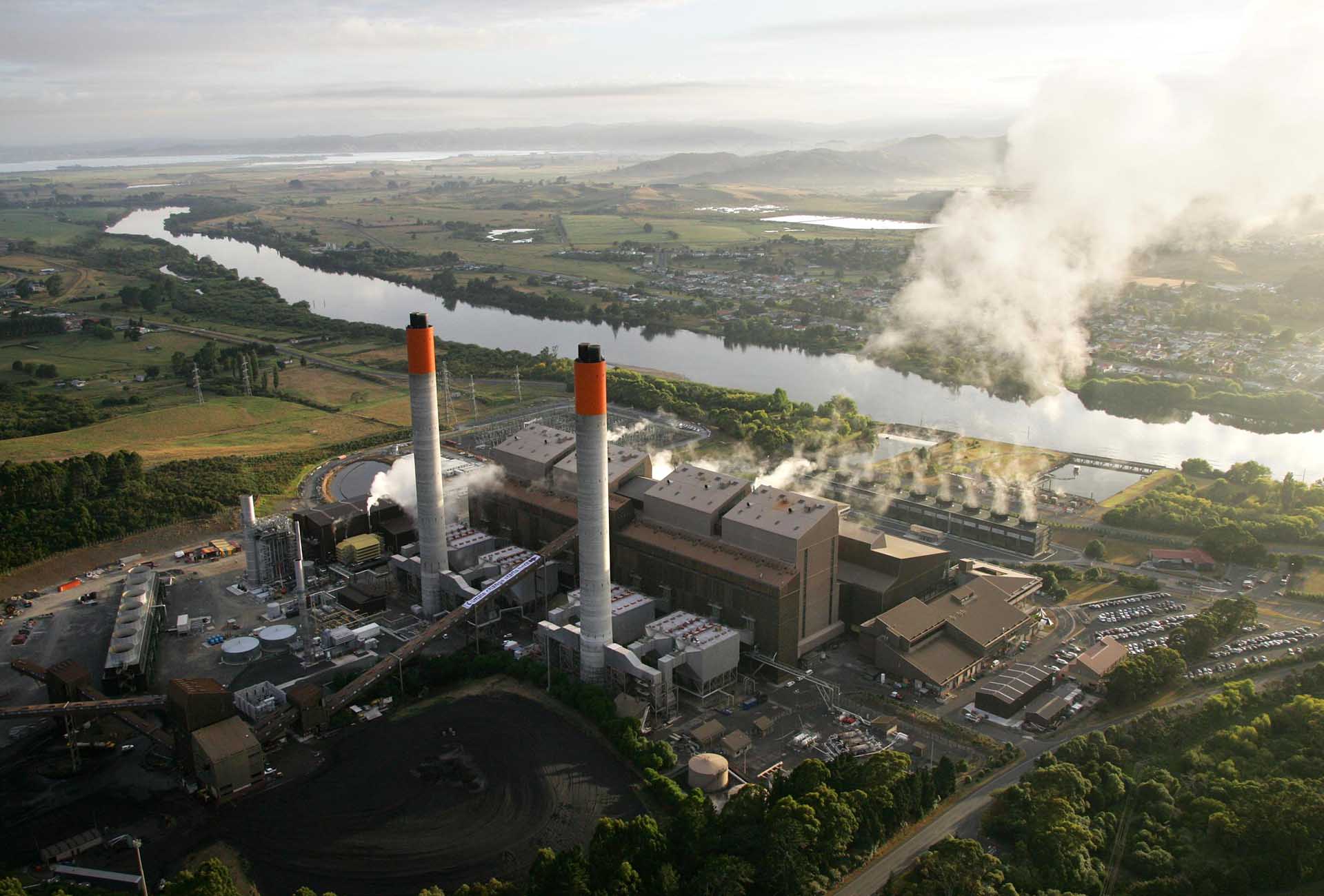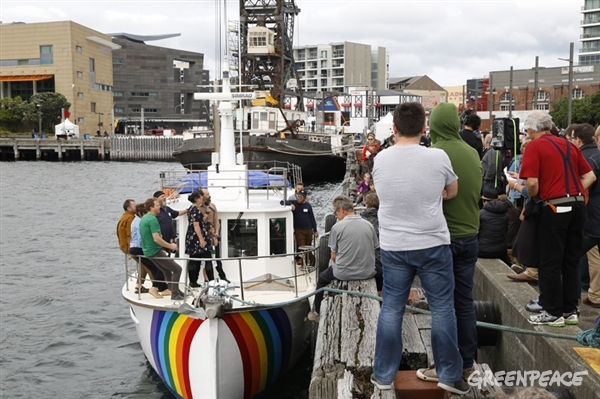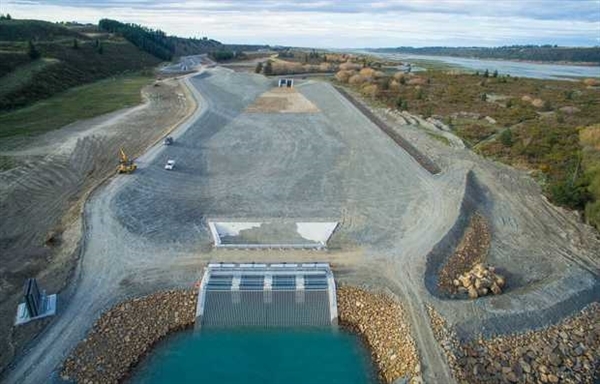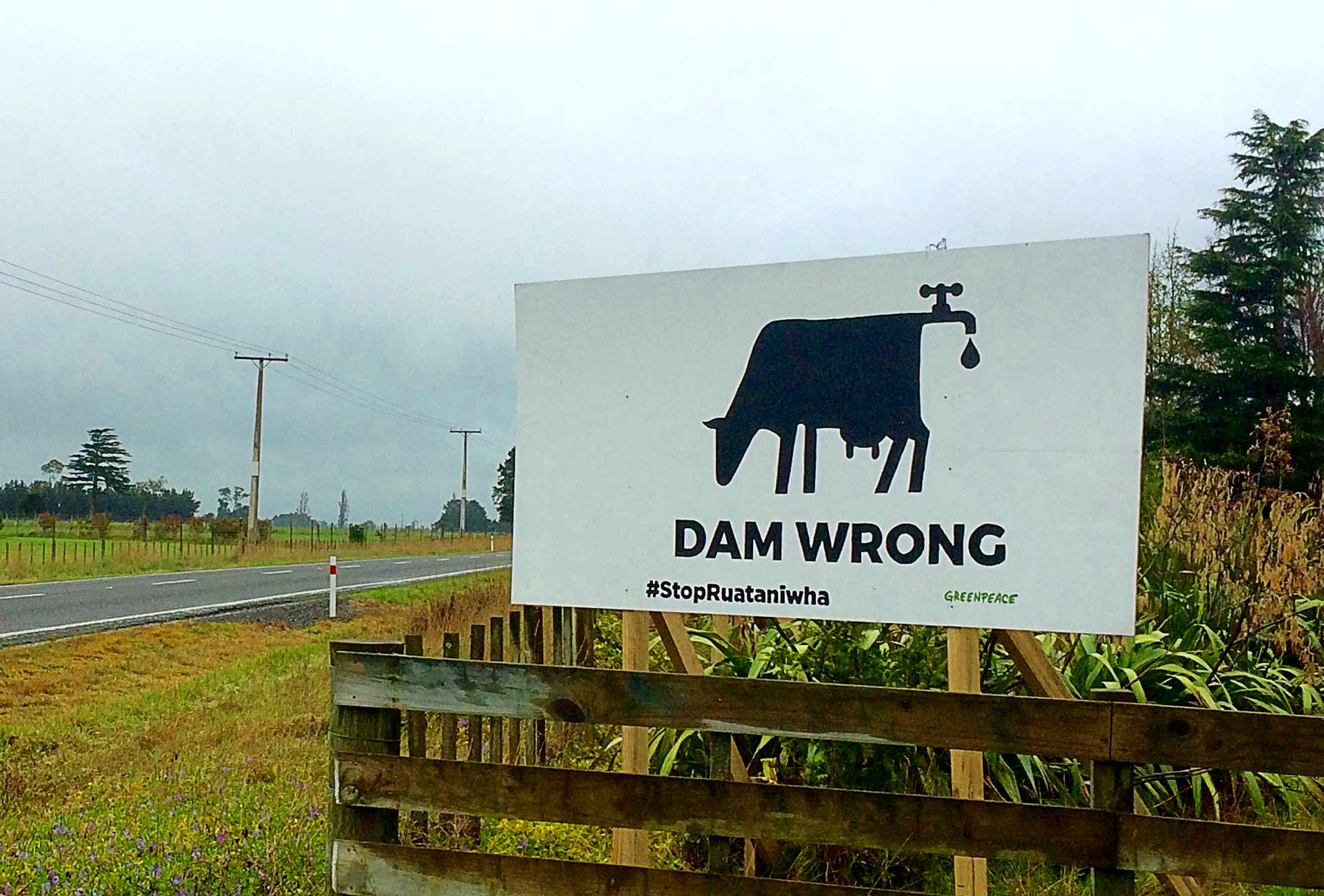-
Dam decision huge victory against big irrigation
Greenpeace says today’s court decision over the Ruataniwha Dam is a major victory in the struggle against big irrigation and the nationwide intensification of dairying.
-
Labour’s Plan to Cull Irrigation Fund a Watershed Policy for Clean Rivers
Greenpeace have welcomed Labour’s commitment to ditch National’s $480 million taxpayer fund for new irrigation schemes.
-
“Where our leaders fail us…” – The folly of fossil fools
This week, a flotilla of yachts will be leaving our shores and heading out to the deep waters off the coast of Raglan. Their purpose: to protest at Texan oil giant Anadarko’s plans to drill an exploratory well in our backyard.
-
Banners on the Beach: Oily people at New Brighton pier
Communities are rising up around Aotearoa to say no to deep sea drilling off their coast. Below we hear from longtime activist and passionate Cantabrian, Siana Fitzjohn, about their day of banners and oily beach-goers.On the 15th February our Christchurch-based group, Oil Free Otautahi, got ready to haul our homemade banners, signs, and sandwiches down…
-
Heron report shows MPI caught by fishing industry – hook line and sinker
The Heron report provides further evidence that the fisheries section of the Ministry of Primary Industry has been captured by the very industry it was supposed to be regulating.
-
10 Reasons to ditch coal at Huntly
New Zealand’s last remaining coal fired power station, Huntly, was due to be shut in 2018. But after colluding with other power companies in closed-door meetings, Huntly’s owner, Genesis Energy, is reconsidering those plans. We say that’s a well bad idea: Genesis must get rid of this coal-belching dinosaur and #ShutHuntlyCoal. Update: Genesis has announced…
-
Taitu’s first voyage as a Greenpeace boat
I’m writing from on board our new crowdfunded boat Taitu after a night I’ll never forget. We arrived in Napier early this morning, after leaving Wellington on Saturday afternoon where we had a wonderful naming ceremony for Taitu.
-
Close the back door on big irrigation
Greenpeace is warning of possible backdoor taxpayer funding for big irrigation schemes.
-
Ruataniwha looks dead in the dirty water
It’s been a tough few weeks for think-big irrigation and industrial agriculture.
-
Anti-dam billboards go up around Hawke’s Bay
Greenpeace is erecting anti-Ruataniwha billboards around Hawke’s Bay this morning, two weeks out from the close of voting in regional council elections.

